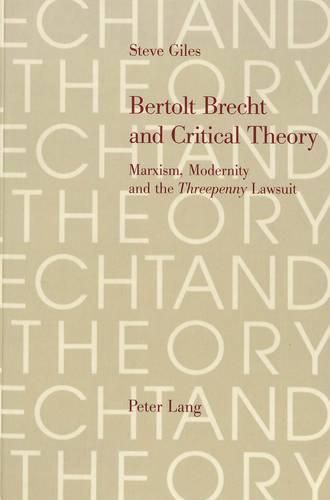Readings Newsletter
Become a Readings Member to make your shopping experience even easier.
Sign in or sign up for free!
You’re not far away from qualifying for FREE standard shipping within Australia
You’ve qualified for FREE standard shipping within Australia
The cart is loading…






This study of Brechtian theory is the first to concentrate on the crucial text Der Dreigroschenprozess (The Threepenny Lawsuit). The author gives a comprehensive account of the legal case that provoked Brecht into writing Der Dreigroschenprozess, in which he examines the implications of film production for authorial and moral rights in copyright law. Brecht’s views on epistemology and social theory are analysed with reference to his reception of Logical Empiricism and the Marxism of Karl Korsch. The author demonstrates how Brecht’s approach to the impact of modern media and technology on traditional aesthetics anticipates Walter Benjamin’s Kunstwerk essay. Finally, the contemporary resonance of Der Dreigroschenprozess is highlighted in relation to postmodern and poststructuralist theory.
$9.00 standard shipping within Australia
FREE standard shipping within Australia for orders over $100.00
Express & International shipping calculated at checkout
Stock availability can be subject to change without notice. We recommend calling the shop or contacting our online team to check availability of low stock items. Please see our Shopping Online page for more details.
This study of Brechtian theory is the first to concentrate on the crucial text Der Dreigroschenprozess (The Threepenny Lawsuit). The author gives a comprehensive account of the legal case that provoked Brecht into writing Der Dreigroschenprozess, in which he examines the implications of film production for authorial and moral rights in copyright law. Brecht’s views on epistemology and social theory are analysed with reference to his reception of Logical Empiricism and the Marxism of Karl Korsch. The author demonstrates how Brecht’s approach to the impact of modern media and technology on traditional aesthetics anticipates Walter Benjamin’s Kunstwerk essay. Finally, the contemporary resonance of Der Dreigroschenprozess is highlighted in relation to postmodern and poststructuralist theory.